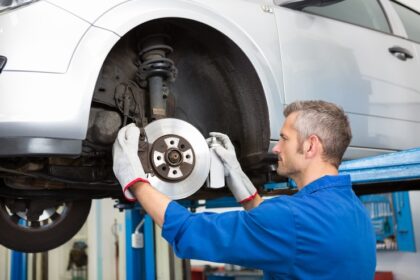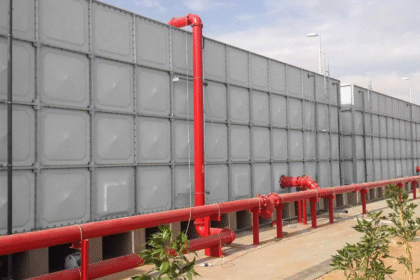Sound equipment plays a crucial role in events, from corporate meetings to live concerts. When handled correctly, it enhances the audio experience and creates a smooth, professional atmosphere. However, improper handling of sound systems — including microphones, amplifiers, mixers, and speakers — can lead to damage, malfunctions, and even personal injuries.
Whether you’re an event organizer, a technician, or someone renting audio gear, safety should always come first. In this blog, we’ll explore essential safety tips for handling sound equipment, ensuring that your setup is both effective and risk-free. These practices are particularly important when opting for services like Speakers Rental Dubai, where you’re dealing with high-end and sometimes unfamiliar equipment.
1. Plan Your Setup in Advance
Before handling any sound equipment, make sure you plan the setup layout thoroughly:
- Choose a safe, dry, and stable area for placing speakers and soundboards.
- Avoid high-traffic areas where people can trip over wires or knock down equipment.
- Use a sketch or diagram to visualize where each item will be placed to avoid clutter and confusion.
Proper planning minimizes errors and makes the setup process smoother and safer.
2. Use the Right Power Supply
Power-related issues are a major safety hazard when dealing with sound equipment:
- Always use a surge protector or power conditioner to avoid equipment damage during power spikes.
- Confirm that the voltage ratings of your audio equipment match the venue’s power supply.
- Avoid overloading power outlets, especially when multiple components like amplifiers, mixers, and lights are being used together.
Unstable power can not only damage your gear but also pose a fire risk.
3. Keep Equipment Dry and Away from Water
This may seem obvious, but water and electronics don’t mix:
- Ensure the equipment is far from drink stations, open windows, or any area where water might spill.
- In outdoor events, use weatherproof covers and enclosures to protect the gear.
- If the equipment gets wet, power it off immediately and let a professional handle the inspection before reuse.
Moisture can permanently damage audio components or cause short circuits.
4. Secure Cables and Wires Properly
Cables are essential for connecting various sound devices, but if not handled correctly, they become trip hazards:
- Use cable covers or tape down all loose wires along floors and walls.
- Keep cables organized using cable ties or Velcro straps.
- Never run power and audio cables in parallel for long distances — this can cause electrical interference.
Proper cable management not only improves safety but also maintains the integrity of the sound output.
5. Wear Appropriate Safety Gear
If you’re handling heavy or sharp-edged audio equipment, consider personal safety:
- Use gloves when lifting heavy speakers or metal stands.
- Wear non-slip footwear to prevent falls when setting up in slick or wet conditions.
- Use hearing protection when testing audio levels, especially in small, enclosed venues.
Protecting yourself physically helps prevent both minor injuries and long-term hearing damage.
6. Avoid Overdriving Speakers and Amplifiers
Excessive volume levels not only damage the equipment but can also lead to serious hearing loss:
- Use limiters and equalizers to manage sound levels safely.
- Stick to manufacturer-recommended input/output ranges for all devices.
- Monitor the sound from different positions in the venue to ensure balanced and safe sound distribution.
Overdriving equipment is not only unsafe — it compromises sound quality.
7. Follow the Manufacturer’s Instructions
Always read and follow the operation manuals of the equipment you’re handling:
- Stick to the assembly/disassembly guidelines to prevent accidents.
- Use only compatible accessories and attachments.
- Don’t attempt to repair equipment without proper knowledge — always call a technician for help.
Being familiar with your equipment can prevent costly mistakes and serious hazards.
8. Test All Equipment Before the Event
Before your event begins, conduct a full system test to catch any issues:
- Check each speaker, cable, mixer, and mic for performance and sound clarity.
- Look for buzzing, crackling, or power issues.
- Have a backup mic or speaker in case something fails during the event.
Testing ensures that your setup won’t fail unexpectedly and cause delays or disruptions.
9. Supervise the Setup and Operation
Don’t leave sound equipment unsupervised during large events:
- Assign a technician or experienced operator to monitor the sound levels and equipment status.
- Watch for overheating, unusual sounds, or disconnected cables.
- Have fire extinguishers nearby, especially near power sources and high-voltage equipment.
Constant monitoring is key to quick problem resolution and guest safety.
10. Handle with Care During Transportation
Many safety issues arise during the loading and unloading of sound equipment:
- Use padded cases or covers for speakers and delicate components.
- Label fragile items clearly.
- Secure all items properly during transportation to prevent damage.
Safe transportation is essential for maintaining equipment longevity and avoiding injuries.
Conclusion
Handling sound equipment with care ensures not only the safety of the gear but also that of your team and guests. Whether you’re renting for a single-day event or managing long-term audio solutions, following these safety practices is a must.
If you’re looking for reliable and high-quality sound systems for your next event, consider speakers rental in UAE. At VRS Technologies LLC, we offer top-grade audio equipment backed by expert support, ensuring both performance and safety every time.


